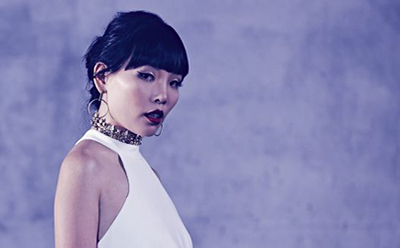 The drama, hilarity and excitement are building for the 2016 Eurovision Song Contest with Australia once again competing for the coveted prize.
The drama, hilarity and excitement are building for the 2016 Eurovision Song Contest with Australia once again competing for the coveted prize.
Now in its 61st year, the Eurovision Song Contest truly is like no other competition, and continues to expand its cult-like influence across the globe. It is quite hard not to become addicted to this spectacle that continues to redefine what is endearingly meant by the term “euro trash”.
Year after year European (and a few ‘almost European’) countries enter their “best” song that have been known to feature outrageous fashion, random props, surprise mid-song performance “reveals”, and seemingly endless musical key changes, with the bar continually raised for what is considered the best (and worst) performance and song.
The prize of this competition is simply to host the following year’s event with participating countries able to vote for their favourite country/song (just not their own). This leads to arguably the most entertaining part of the contest with awkward hosts attempting to build the suspense while comical and at times oblivious representatives announce their country’s jury votes.
While at times Eurovision moves past the point of hilarious to beyond ridiculous (it is Eurovision after all), this competition has helped to pave the path for success for many musical legends, including ABBA (Sweden, 1974), Olivia Newton John (UK, 1974) and Celine Dion (Switzerland, 1988), as well as cementing the career end of others such as Engelbert Humperdinck and Bonnie Tyler (United Kingdom, 2012 and 2013). A Eurovision song has also famously signaled the start of a political coup (Portugal’s 1974 song E Depois de Adeus by Paulo de Carvalho).
This year’s competition has already created controversy and the drama/bizarreness inherent to Eurovision is building. Hovi Star, Israel’s 2016 entrant, had his passport ripped up by officials in a Russian airport in a suspected homophobic incident and has publicly stated that he still respect’s Russia’s entrant Sergey Lazarev to not promote hatred towards the performer.
Romania has made history books as the first country ever to be disqualified from the competition due to its broadcaster TVR not paying its bills – a shame for the Romanian performer Ovidiu Anton and his ironically entitled rock ballad Moment of Silence that would have featured a sword dancer (a loss to many drinking games across the globe). And not to be outdone, or simply to be overdone, Belarus entrant Ivan wishes to sing his song Help You Fly naked onstage with live wolves.
Australia has certainly not been immune to the Eurovision phenomenon thanks largely to the continual promotion of the event by SBS Australia, fan-centred events and tribute show productions. Australia was acknowledged as one of the biggest fan countries outside of Europe by being included in last year’s competition as a “one time special guest”.
Guy Sebastian did the nation proud with his song Tonight Again that came in at a respectable 5th place overall. Because of this, and in true Eurovision fashion, Australia will again compete in this year’s competition in Stockholm Sweden, with the exuberant Dami Im and her song Sound of Silence, a pop anthem complete with a name perfectly fitting the Eurovision ethos.
Eurovision artists are actively acknowledging their Australian fans, with last year’s winner from Sweden, Måns Zelmerlöw, performing at the 2016 Australian Open, and Conchita Wurst (2014 winner from Austria) headlining Adelaide’s 2015 Feast Festival and the 2016 Sydney Gay and Lesbian Mardi Gras. Even perhaps the most outrageous Eurovision winners of all time Lordi (2006), a monster-themed heavy metal band from Finland are headlining Australia’s newest heavy metal music festival Legion that will tour the nation in 2017.
To keep the spirit alive leading up to the Eurovision Song Contest in May, Song Contest – the Almost Eurovision Experience has kept the fans happy in Melbourne at the Alex Theatre (currently playing till 1 May 2016). Song Contest is a tribute show featuring original songs, each a Eurovision anthem in their own right, from 11 countries all vying for glory.
Containing as many Eurovision clichés as possible without being Eurovision itself, this escapade focusses on Belarus hosting the contest, who has never actually won the Eurovision title in actuality (possibly something to do with singing naked with wolves). The audience is encouraged to participate in supporting their country (assigned by a random badge given at the door) and to vote for their favourite song, with a different winner announced each performance.
This training will come in handy, as Australia is actually tipped in third position leading up to Eurovision 2016 to take the title, after France with the talented Amir’s song J’ai Cherché (Looking For You) and the current favourite from Russia Sergey Lazarev and his song You Are The Only One, who will battle against his country’s controversy with a “reveal” that is likely to involve him removing his shirt (no wolves required here).
Will Australia achieve what many European nations have not and win Eurovision 2016? Probably not, but it is clear that Eurovision will continue to win the hearts of many more fans in Australia for years to come.
The Eurovision Song Contest will be broadcast on SBS on Friday 13, Saturday 14 and Sunday 15 May (Grand Final). For more information, visit: www.sbs.com.au for details.
Image: Dami Im – photo by Peter Brew-Bevan
